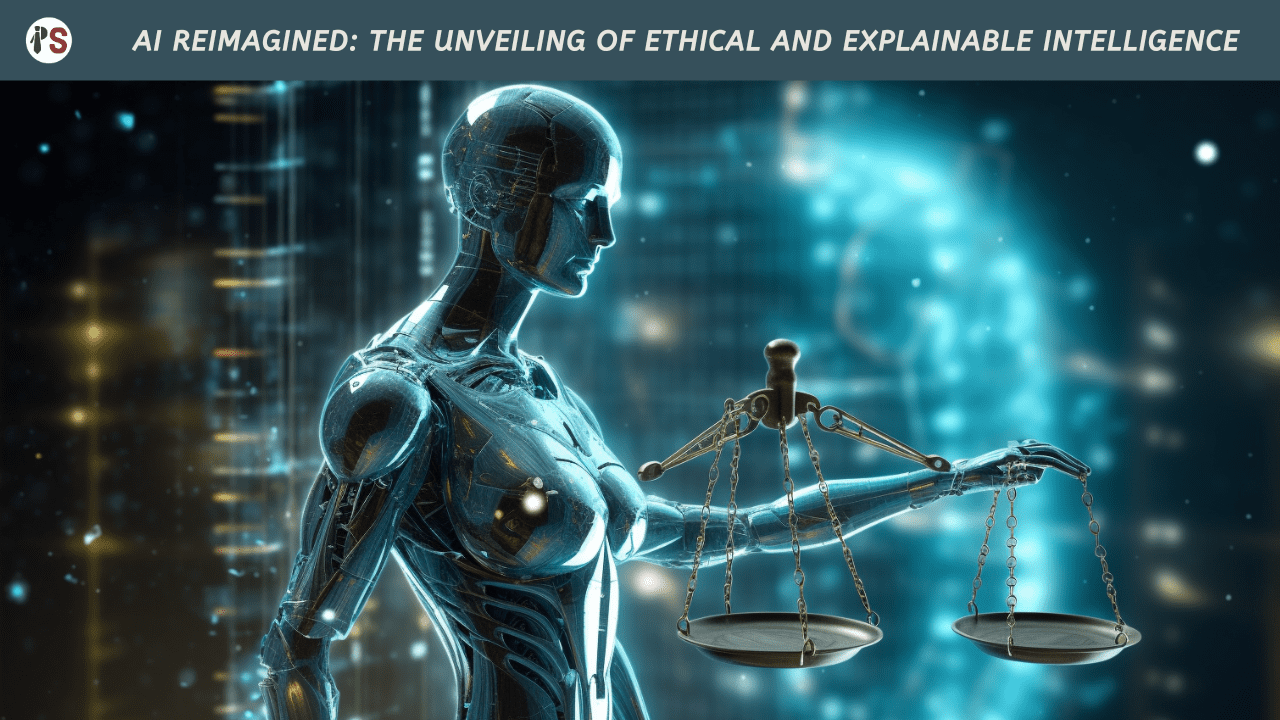Let's imagine a reality where AI is not only smart but also explainable and ethical. A reality where AI respects human rights, operates with utmost transparency, and is free from bias. This isn't a distant dream but a practical objective that we must strive to achieve.
Deciphering AI: A Snapshot
Artificial Intelligence, also known as AI, is a technology designed to mimic human intelligence. It analyses vast amounts of data, learns from it, and makes informed decisions. However, the complexity of its operations often makes it a 'black box,' with its decision-making process remaining unclear to the human users.
The Centrality of Ethics in AI
The Imperative of Transparency in AI
Transparency in AI systems is crucial. Just as we demand transparency in human interactions and business dealings, we should expect the same from AI systems. After all, isn't it disconcerting if we cannot comprehend how a system that impacts us is reaching its conclusions?
AI Bias: An Unforeseen but Significant Concern
Bias often infiltrates AI systems, mainly due to the prejudiced data on which they are trained. It's not just a technological problem; it's fundamentally a human issue. When an AI system discriminates, it's not solely the system at fault – it's a mirror reflecting societal biases that have permeated the training data.
Why Does Ethical AI Matter?
Ethical AI's Influence on Businesses
Consider yourself as a business proprietor. Would you want your AI system to make biased decisions that might tarnish your brand image? Certainly not. This is precisely why ethical AI is indispensable in business – it ensures decisions are fair, unbiased, and uphold the integrity of your company.
The Link between Ethical AI and User Trust
Trust forms the cornerstone of all relationships, including the bond between humans and AI. Ethical AI systems, characterized by transparency and the absence of bias, earn their users' trust, which leads to improved user engagement and satisfaction.
Consequences of Unethical AI
Conversely, unethical AI can lead to disastrous outcomes, from unfair discrimination and loss of user trust to potential legal repercussions. And the grimmest part? Reversing the damage could prove exceedingly challenging.
Journey Towards Explainable AI?
Explainable AI Demystified
Explainable AI, commonly known as XAI, represents AI technologies that provide insights into the complex workings of machine learning models. Essentially, it's about pulling back the curtain on AI's 'black box.'
Why Explainable AI Matters?
Ever tried to solve a jigsaw puzzle without the image on the box? It's a struggle, right? That's similar to using an AI system that doesn't explain its actions. Explainable AI is indispensable because it provides users with the necessary 'map' to understand AI's decisions, thereby building trust and facilitating superior decision-making.
The Fight Against Bias: The Movement towards Ethical AI
Real-life Applications: Ethical AI in Action
Many organizations are actively taking steps towards ethical AI. Google's AI Ethics Principles and IBM's AI Ethics Board are prime examples, creating responsible AI use guidelines. These initiatives validate that ethical and explainable AI is not just a theoretical notion but a practical possibility.
Strategies for Realizing Ethical and Explainable AI
Realizing ethical and explainable AI requires a strategically planned approach. It involves:
- Data auditing: Regularly scrutinizing the data used for AI training to ensure it is not biased.
- Transparency by design: Developing AI systems with transparency as a fundamental principle, not an afterthought.
- Education: Training AI developers about the significance of ethics and explainability in AI.
Wrapping Up
In the final analysis, ethical and explainable AI aims to create AI systems that respect our values, our rights, and our intellect. It's about ensuring that as we step into an AI-driven future, we do so with technology that serves us equitably, without bias or obscurity. Isn't that the kind of future we all aspire for?
FAQs
1. What does ethical AI mean?
Ethical AI refers to AI systems that operate based on principles of fairness, transparency, and respect for human rights.
2. How can we attain explainable AI?
Explainable AI can be attained by creating AI systems to offer comprehensible explanations for their decisions and actions.
3. Why is eliminating bias in AI vital?
Eliminating bias in AI is vital to ensure just decision-making, maintain user trust, and avoid potential legal complications.
4. What is the role of transparency in AI?
Transparency in AI is crucial to render the operations of AI systems comprehensible to humans, thereby fostering trust and allowing for informed decision-making.
5. Can AI systems be entirely unbiased?
While creating completely unbiased AI is a challenge, routine data auditing and incorporating ethics in AI design can significantly minimize bias.

Leave Your Comment